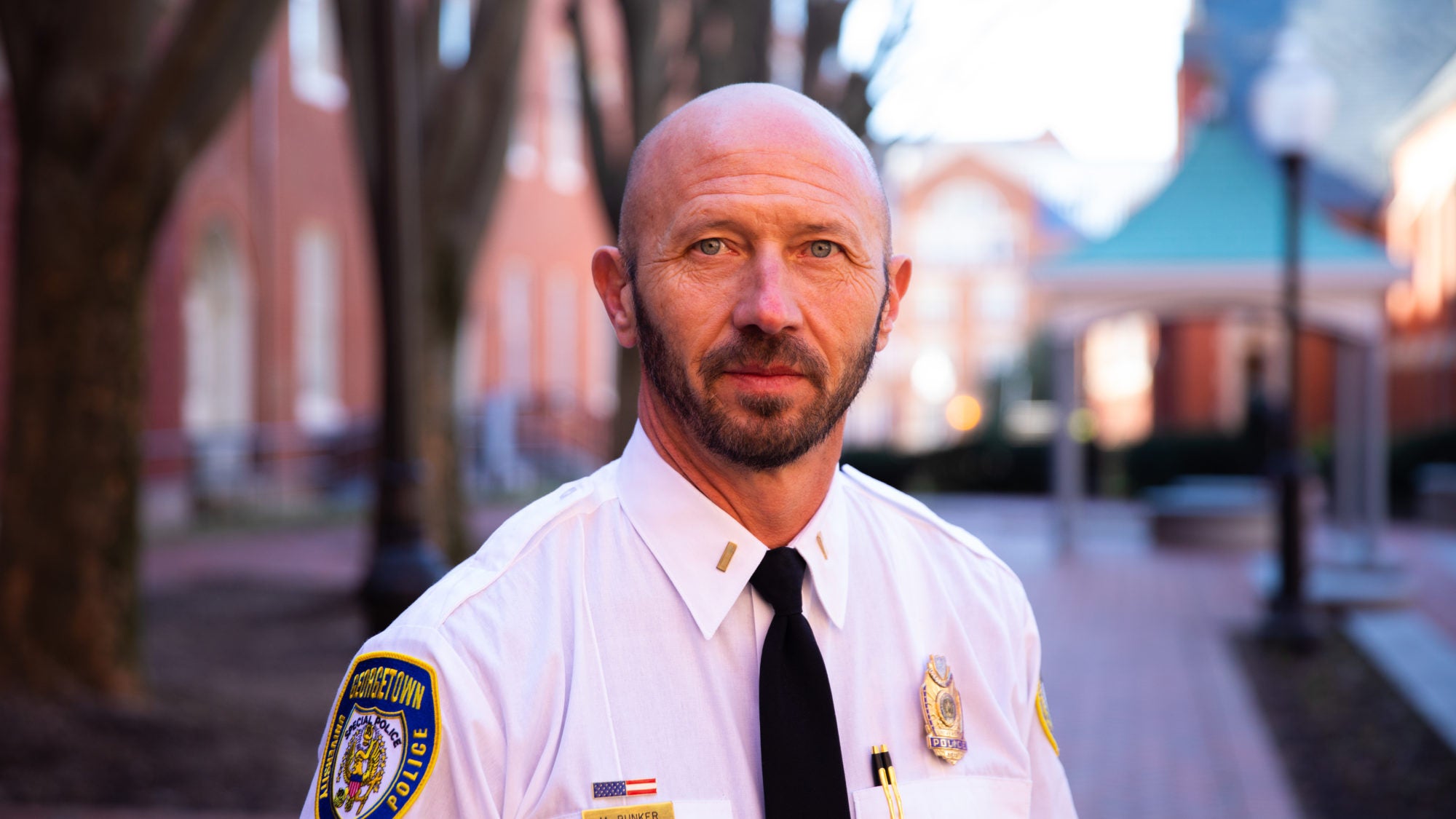I departed for the Kino Border Initiative (KBI) trip with members of senior leadership at Georgetown not knowing what to expect or how it would affect me. The immersive trip required me to step out of my comfort zone and look at things from a completely different perspective.
I thought that I knew how I felt about immigration. I thought that I knew how immigrants felt. I thought that I knew how the immigration process worked. I basically thought that I had it all covered. But I was wrong.
We arrived in Tucson, Arizona, for the four-day experience and departed Thursday morning for our trip to Nogales, Arizona. I remember having butterflies in my stomach as I went to sleep that night and started to mentally prepare myself for the next three days.
The first morning, we crossed the border into Nogales, Sonora, Mexico. I saw fences, walls and barbed wire and what looked like stockyard gates to cross into Mexico. I was taken aback by what I saw. It’s not what we see on television.
Once we arrived at the comedor, the KBI facility where migrants come for meals, we were assigned different duty stations, and we all helped feed the migrant families that gratefully lined up for the morning meal.
Later we walked through Nogales, Sonara, where a Jesuit the priest provided us with a history lesson and showed us the border wall up close. There is nothing pretty about a long piece of metal that separates families.
As we made our way back to Tucson each night, I realized how easy it was for us to cross the border. I felt a sense of guilt as I peered over my shoulder and saw the people I had just served. I thought, “These people are just looking for the same kind of freedom I have.”
The final day we trekked to the desert to walk the path that many immigrants walk after they have crossed the border. On the journey, we saw water bottles, baby bottles, papers, and other items, and it left me wanting to understand more about what their journey had been like. I wondered where they were now and if they had survived the trek.
The experience left me asking myself how is it that many people do not respect the trauma that is going on with migrant families.
Our countries need to figure out how to make this work. The day my daughter was born forever changed my life and how I viewed the world. My trip to Nogales had almost the same life-changing effect on me, and I have now vowed to be an advocate for those trying to cross the border and experience the same freedoms that I take for granted each and every day.
Soon after my trip, I talked to a group of police academy recruits about my time at the border and the important role humanity plays when immigrants are involved. Working as a reserve sheriff’s deputy for Fairfax County, I plan to continue to share my experience, and I hope I can build awareness around immigrant communities.
